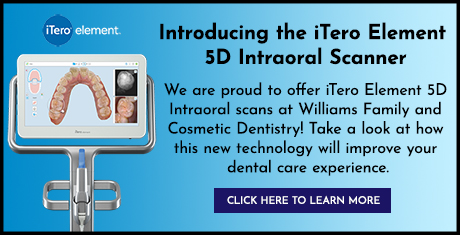When patients of the Brandon, Florida area are in need of a thorough cleaning for proper plaque and tartar removal, they need to ask their dental team at Williams Family and Cosmetic Dentistry about the advantages of professional teeth cleaning by our dental hygienists. Teeth cleaning, also known as prophylaxis, is a treatment used to reduce bad breath, remove plaque and tartar, and address discoloration or yellowing. This routine procedure is performed each time a patient visits their dentist every six months for an evaluation.
Is a regular prophylaxis cleaning different from scaling and root planing?
Routine cleaning is definitely different from scaling and root planing, which is a more thorough cleaning that is performed for patients who have periodontal disease. Scaling and root planing works deeper than a routine prophylaxis cleaning to remove bacteria from the roots of the teeth above and below the gumline. This is required for patients with periodontitis (gum disease) and is determined by recording measurements and examining your gum tissue. Scaling and root planing is not the same cleaning received during recall visits.
What steps might be involved in a dental cleaning?
First, our dentist will do a comprehensive exam, and learn more about the patient’s likes or desires regarding their teeth and smile. The cleaning typically happens on the second appointment, once it has been determined that our dentistry is the right fit for the patient.
Below are some of the procedures that a dentist can undertake during teeth cleaning:
- Tartar removal
- Plaque removal
- Teeth polishing
- Fluoride applications
- Sealant applications
- Occlusion check
- Antibiotic therapy
- Medical history review
- Oral cancer screening
- Periodontal health evaluation
- Denture care/cleaning/adjustment
- Diet/nutrition counseling
- Oral hygiene education
- Recommendations for upcoming dental treatment
Can prophylaxis cleaning cure bad breath?
A thorough cleaning may help patients who have bad breath, as it ensures all food particles and bacteria in the mouth are addressed. These deep cleanings have many benefits for patients to consider, and continue to be a smart way for patients to be proactive about their oral health and wellness!
In need of a professional cleaning?
Connect with our team at Williams Family and Cosmetic Dentistry today to learn more! We are located in Brandon, FL, and can be reached by calling (813) 560-0447. Our facility accepts new and current patients and families in the nearby communities of Valrico, Lithia, Riverview, Apollo Beach, Plant City, Sun City Center, and Tampa, FL
FAQs
Professional teeth cleaning (prophylaxis) can reduce bad breath, remove plaque and tartar, and address discoloration or yellowing of teeth. It benefits oral health in the short and long term.
You should visit your dentist once every six months for an evaluation and teeth cleaning. If you are a smoker or have gum disease or certain medical conditions, you should book teeth cleanings more often.
This procedure causes no pain for most people, although some, especially those with high teeth sensitivity, may feel discomfort. Speak to your dentist and request local anesthesia or numbing agents if this is a problem. Over-the-counter medication can be used, if necessary, post-procedure.
Yes, in fact, these restorations also need to be maintained the same way as your natural teeth. Tell your hygienist about your restorations beforehand, and they will take extra care during the cleaning procedure to prevent scratching or detaching the restorations.
If you were administered anesthesia, refrain from eating anything while your mouth is numb to prevent biting your tongue or gums. Since your teeth and gums will be sensitive after the teeth cleaning, avoid food and drinks that can cause irritation for at least two days. These include hot, cold, sharp, or hard foods or those that must be chewed a lot.




